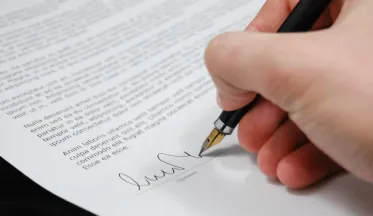Have Questions? Contact Us.
Since its inception, NYCLA has been at the forefront of most legal debates in the country. We have provided legal education for more than 40 years.

|
On July 29 the Wall Street Journal published an interview with Justice Samuel Alito, in which among other things he criticized the organized bar for not defending him on the allegation that he committed unethical conduct by accepting a trip from someone whose company had a case before the Supreme Court. He also stated that no one — and certainly not Congress — could tell the Supreme Court what to do about its ethics. We sent a letter to the paper stating our disagreement, which the Journal published, after editing. Read the entire letter here
To the Editor:
Regarding “Samuel Alito, the Supreme Court’s Plain Spoken Defender” (WSJ Print ed., 7/29/23): We at the New York County Lawyers Association are sorry to hear that Justice Alito is disappointed in us (and other bar associations) for not “coming to his defense” on the issue of Supreme Court ethics. He should know that, with a 114-year history of supporting judicial independence, our Association is more than willing to defend judges against criticism when doing so is warranted. The real problem isn’t the failure of the organized bar to defend Justice Alito and certain of his Supreme Court colleagues against criticism. It is the unwillingness of those justices to recognize just how far from ordinary, common-sense ethical norms their behavior has strayed, which is the reason why the organized bar is not defending them. Our Association has issued a report calling for the Supreme Court to adopt a comprehensive code of ethics for itself, similar to the one imposed on every other federal court in the land. If they won’t do it, Congress should do it for them. Justice Alito is also wrong when he states that Congress has no power over the Supreme Court. For more than 200 years, Congress has regulated the Court’s size, jurisdiction, and rules. A mandatory code of ethics fits well within these congressional powers under the Constitution.